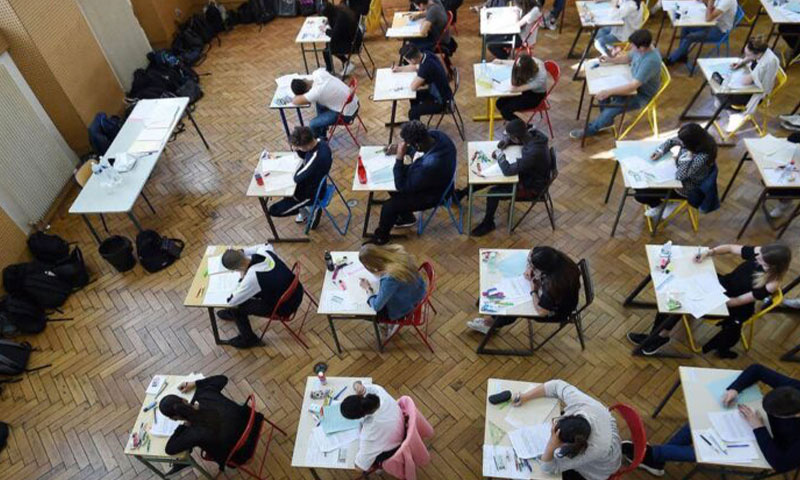- Aasiya Niaz
- 7 Minutes ago
Coalition partners asked to finalise name of caretaker PM in two days
-

- Web Desk
- Jul 31, 2023

ISLAMABAD: The government coalition partners have been asked to finalise the name of the caretaker prime minister within two days after holding consultations with their respective leadership.
A meeting of the government coalition leaders was held at the Parliament House on Monday to discuss the formation of the caretaker set-up that will oversee the next general elections in Pakistan.
The meeting was attended by representatives from the Pakistan People’s Party (PPP), the Pakistan Muslim League-Nawaz (PML-N), the Muttahida Qaumi Movement (MQM), the Pakistan Muslim League-Quaid (PML-Q) and other coalition parties, according to Geo News.
Some of the prominent participants were Naveed Qamar, Khurshid Shah, Aitzaz Ahsan, Saad Rafique, Manzoor Kakar, and Shahzain Bugti.
The meeting decided that all political parties would submit their suggestions for the caretaker prime minister to Prime Minister Shehbaz Sharif, who will then consult with the opposition leader Raja Riaz Ahmad Khan of the Pakistan Tehreek-e-Insaf (PTI) to reach a consensus on the matter.
If they fail to agree on a name, the matter will be referred to a parliamentary committee comprising members from both the treasury and opposition benches.
The current National Assembly of Pakistan is set to complete its five-year term on August 12, 2023. However, Prime Minister Shehbaz Sharif had announced earlier that he would dissolve the assembly before its expiry date and hand over power to the caretaker government.
According to the constitution, the general elections must be held within 60 days of the dissolution of the assembly. This means that the elections must be held no later than October 11, 2023.
The upcoming general elections are expected to be a close contest between the ruling PML-N, which has been in power since 2018, and the opposition PTI, which has emerged as a major political force in recent years.
Read more: Election amendment bill sails through parliament with more powers to interim set-up
The PPP, which ruled from 2013 to 2018, is also hoping to regain its lost ground in some provinces. Other regional and religious parties are also vying for seats in the National Assembly and the four provincial assemblies.
The general elections will be held under a new electoral system based on the 2023 census, which was conducted after a gap of 19 years.
The census results have changed the allocation of seats among the provinces and districts according to their population size.
The total number of seats in the National Assembly has increased from 342 to 356, with Punjab losing seven seats, Sindh gaining five seats, Khyber Pakhtunkhwa gaining four seats and Balochistan gaining two seats.
The number of reserved seats for women and minorities has also increased proportionally.




